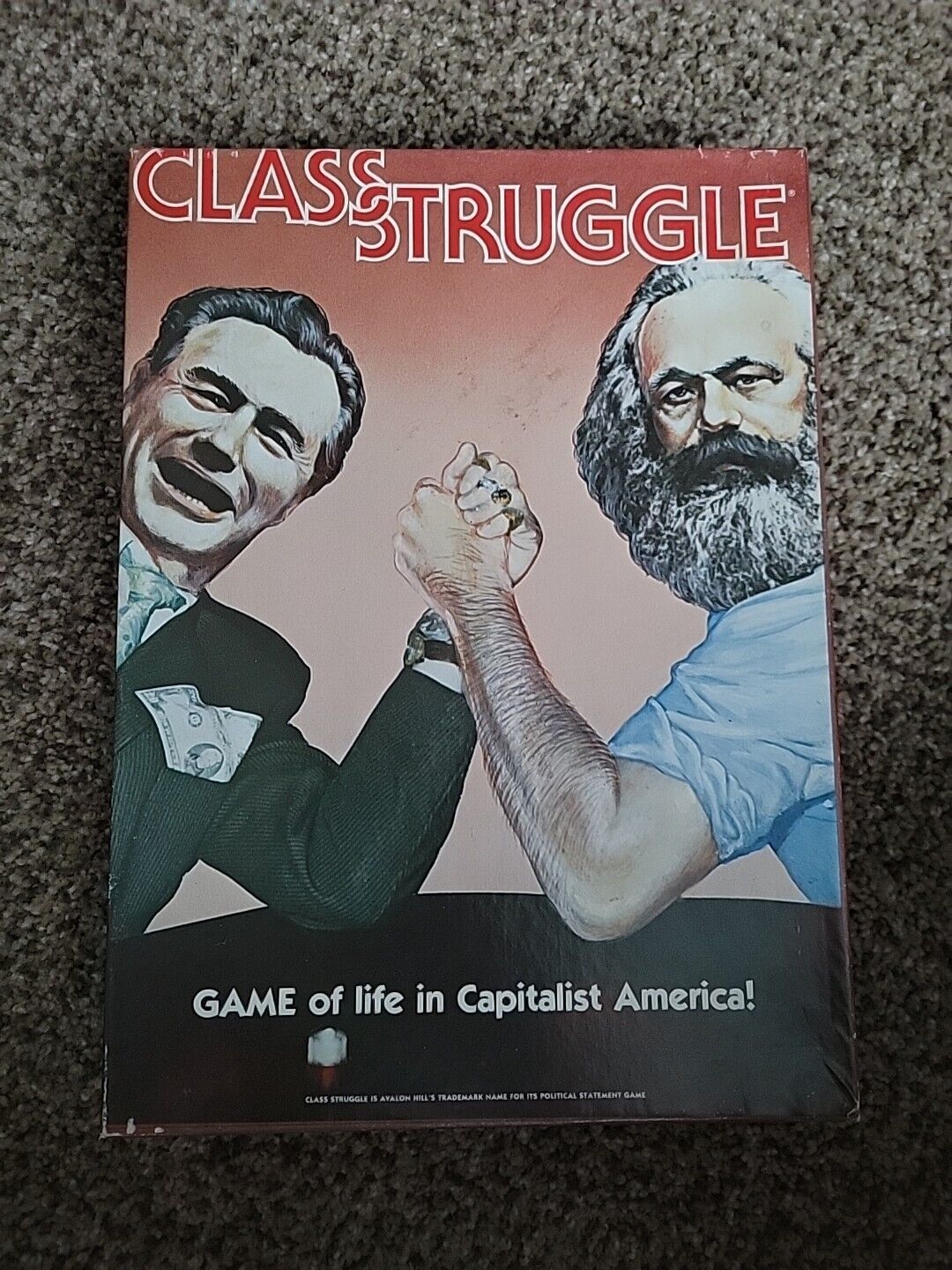Class Struggle (1978)
Class Struggle
Class Struggle is a board game for two to six players, designed by Professor Bertell Ollman and published in 1978 by Avalon Hill. The game was intended to teach players about the politics of class struggle and Marxism. The game was even translated into multiple languages and sold over 200,000 copies.
Why is Class Struggle Popular?
Class Struggle is significant because it is a unique board game that teaches players about Marxist theory and the politics of class struggle. It is also notable for being one of the few board games that is explicitly political in nature. Despite its niche subject matter, the game sold well and was even translated into multiple languages.
Game Components of Class Struggle
How To Setup Class Struggle
To set up the game, players first determine their class by a roll of the “genetic” dice. Each player receives their respective class tokens and starting assets. The game board is laid out, and Chance cards are shuffled and placed within reach of all players. Players start at the beginning of the board, ready to move based on dice rolls.
Gameplay Mechanics and Game Objective
Player Experience
Playing **Class Struggle** can be a unique and educational experience, especially for those familiar with Marxist theory. The game is designed to illustrate the inequalities and power dynamics between different social classes. However, the game’s original rules have been criticized for being half-baked and in need of modification to enhance playability.
Pros
Cons
Personal Thoughts on Class Struggle
**Class Struggle** is ideal for those interested in Marxist theory, history, and sociology. While it may not be a game designed for serious gamers looking for deep strategy, it serves as a unique educational tool and a fascinating piece of historical gaming culture. Modifications to the rules can make the game more engaging and playable, but it remains a charming and thought-provoking experience, especially in its ability to spark discussions about class and social inequality.
We are supported by our audience. When you purchase through links on our site, we may earn an affiliate commission, at no extra cost for you. Learn more.

